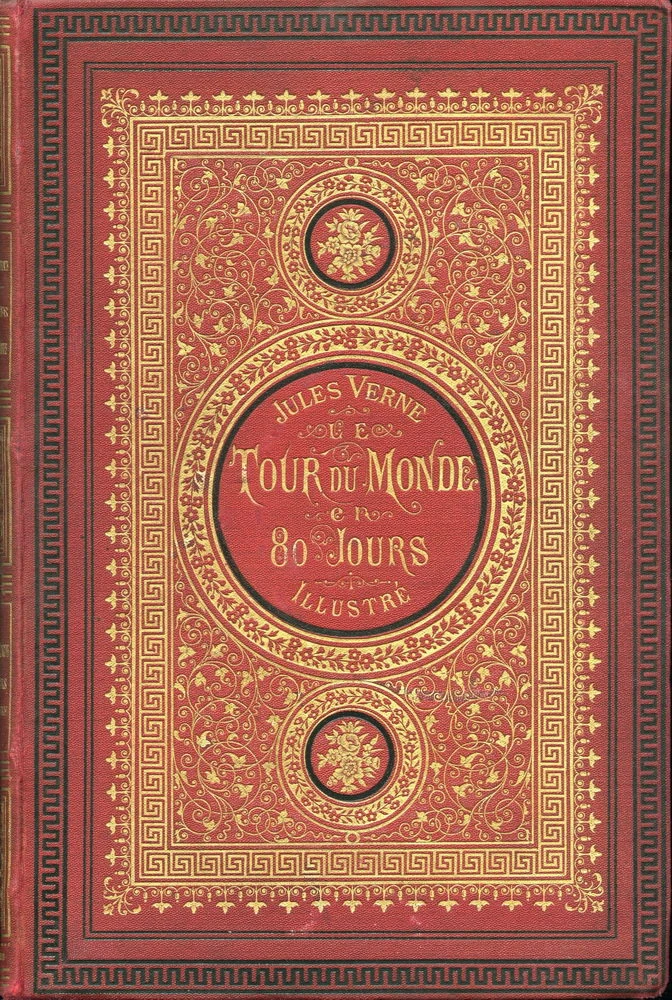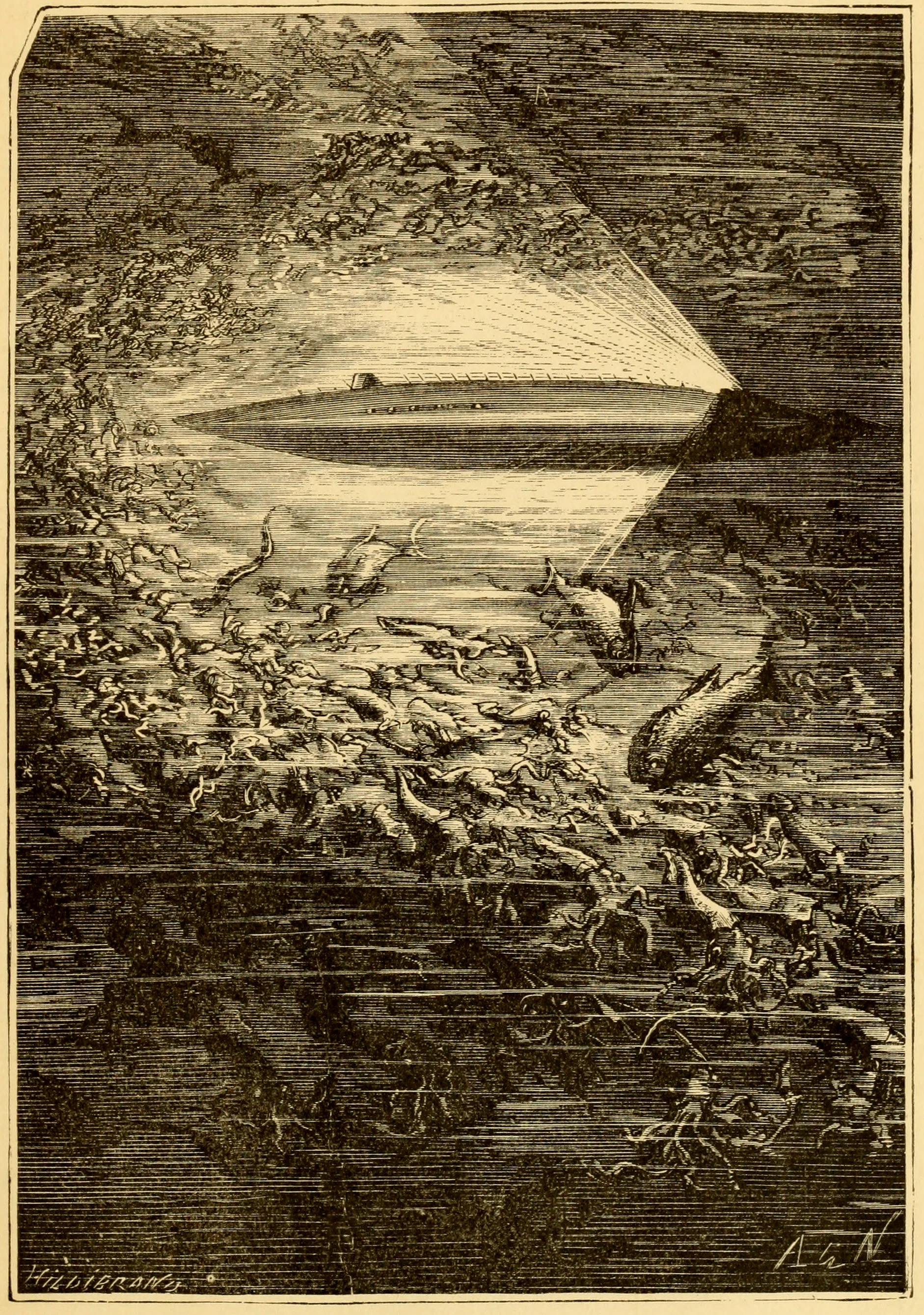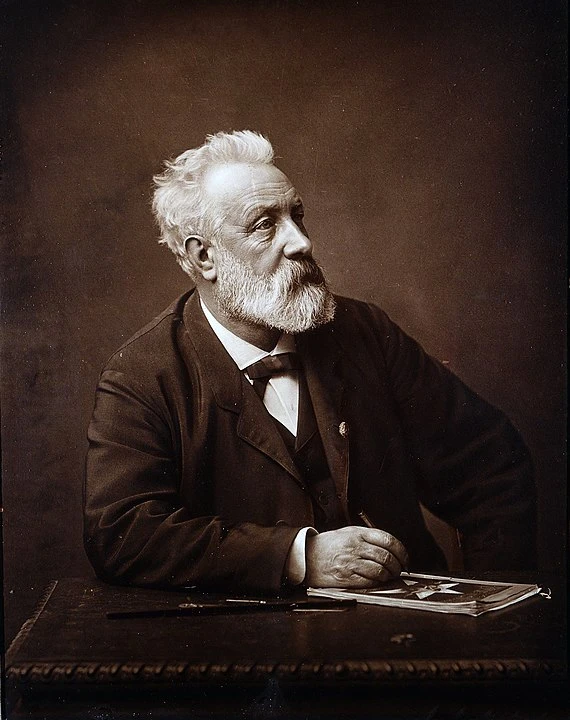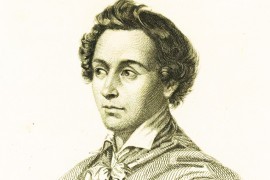A childhood in Nantes
Jules Verne was born in 1828 in Nantes, into a bourgeois family. His father is a lawyer, and dreams of a legal career for him. But young Jules was already drawn to adventure and the sea. One anecdote recounts how, at the age of 11, he attempted to embark as a ship's boy on a vessel bound for India, only to be caught by his father. This passion for travel would mark all his work.
Jules Verne at 25/ By unattributed - [1], Domaine public, https://commons.wikimedia.org/w/index.php?curid=46910474
Literary beginnings in Paris
Sent to Paris to study law, Verne became more interested in literature and theater. He frequented artistic circles and wrote plays, while working as a secretary at the Théâtre-Lyrique. But it was his meeting with publisher Pierre-Jules Hetzel that changed his life: he encouraged him to write scientific adventure novels for young people.
Les Voyages extraordinaires
Starting in 1863, Jules Verne published a series of novels under the general title of Voyages extraordinaires. These tales take readers to the four corners of the globe and beyond: to the oceans, to the center of the Earth, all the way to the Moon. Each novel blends adventure, scientific knowledge and visionary imagination. Among the most famous:
-
Five Weeks in a Balloon (1863)
-
Voyage to the Center of the Earth (1864)
-
Twenty Thousand Leagues Under the Sea (1870)
-
The Around the World in Eighty Days (1873)
-
From the Earth to the Moon (1865)
The Nautilus imagined in 1875 in an edition of "20,000 Leagues Under the Sea".
A visionary writer
What sets Verne apart from his contemporaries is his ability to anticipate the great inventions of the future. In Twenty Thousand Leagues Under the Sea, he describes the Nautilus, a submarine that bears an uncanny resemblance to modern submersibles. In From the Earth to the Moon, he imagines a giant projectile shot that heralds space rockets. His flying machines, remote communications and explorations anticipated many of the innovations of the XXᵉ century. Verne was not a scientist, but he read technical journals with passion and knew how to turn discoveries into fascinating stories.
A worldwide success
Verne's success soon spread beyond France's borders. Translated into dozens of languages, he became one of the world's most widely read writers. His novels captivate young and old alike, offering both thrilling adventures and reflections on progress.He is today the most translated author after Agatha Christie.
A personal life marked by contrasts
Married in 1857 to Honorine de Viane, Jules Verne divided his time between Paris and Amiens, where he settled permanently. He suffered from financial problems and poor health. In 1886, he was even shot by his nephew, a tragedy that left him permanently disabled.
But he continued to write relentlessly, publishing over 60 novels until his death in 1905.
The legacy of Jules Verne
Today, Jules Verne is considered the father of modern science fiction. His influence extends far beyond literature: inventors, explorers, scientists and filmmakers claim him as their own. His works have been adapted for film, theater and comic strips. In Nantes, a museum is dedicated to him. Jules Verne proved that literature could open up the imagination and inspire the future.
FAQ
Who was Jules Verne in the history of French literature?
Jules Verne was a French writer of the XIXᵉ century, famous for his tales of adventure and science fiction, blending imagination, exploration and anticipation.
Which works made Jules Verne famous in science fiction?
His iconic novels include Voyage to the Center of the Earth, Twenty Thousand Leagues Under the Sea, Around the World in Eighty Days and From the Earth to the Moon.
How did Jules Verne anticipate technology in his novels?
Verne described advanced devices, such as the submarine or the space projectile, based on the scientific discoveries of his time and extrapolating them with imagination.
What impact did Jules Verne have on science and culture?
His work has influenced generations of writers and inventors, popularized the idea of technological progress and nourished the world's collective imagination.
Excuse the language mistakes, our translator is not always very good (and he has a terrible French accent!)

![Jules Verne at 25/ By unattributed - [1], Domaine public, https://commons.wikimedia.org/w/index.php?curid=46910474](https://monsieur-de-france.com/media/cache/ludodev_compress_webp/uploads/images/jules-verne-aged-25-1758792513.jpg)




